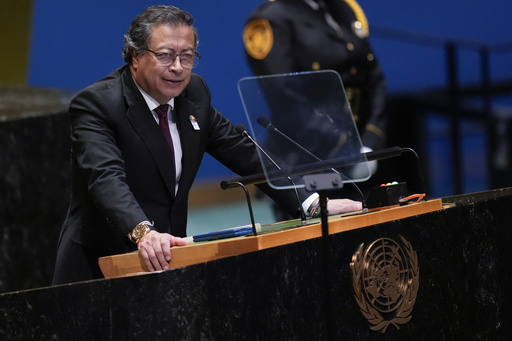
BOGOTA, Colombia — On Tuesday, President Gustavo Petro of Colombia directed the state-owned oil company Ecopetrol to terminate its joint venture with the American firm Occidental Petroleum (Oxy), which was set to yield approximately 90,000 barrels of oil per day. The decision stemmed from heightened environmental concerns associated with the methods of extraction proposed.
In a nationally broadcast address, Petro expressed his disapproval of the extension of the agreement between Ecopetrol and Oxy, primarily because it involved hydraulic fracturing, commonly known as fracking. This extraction method has faced significant opposition from various environmental organizations due to the threats it poses to the ecosystem.
“I am calling for the dismissal of this operation, and I want the profits to be directed toward renewable energy sources,” Petro stated during a Cabinet meeting that was streamed live on social media. He emphasized, “We stand firmly against fracking, as it signifies the destruction of nature and humanity’s demise.”
Ecopetrol had revealed a day earlier its plans to renew its operations in the Permian basin, which stretches across Texas and New Mexico. This project involved the development of 91 oil wells and was expected to require an investment of over $880 million.
According to reports, Ecopetrol’s activities in the Permian basin produced an average of 95,200 barrels of oil per day during the first three quarters of the previous year, accounting for around 12% of the company’s total output that year. While the announcement of the partnership with Occidental saw Ecopetrol’s shares rise by 2% on Tuesday, they experienced a slight decline after Petro insisted on halting the agreement.
In Colombia, the government has consistently denied the approval of fracking projects within its borders, although Ecopetrol had previously been permitted to engage in fracking operations internationally. Environmental advocates contend that fracking poses risks such as water contamination and seismic activity.

